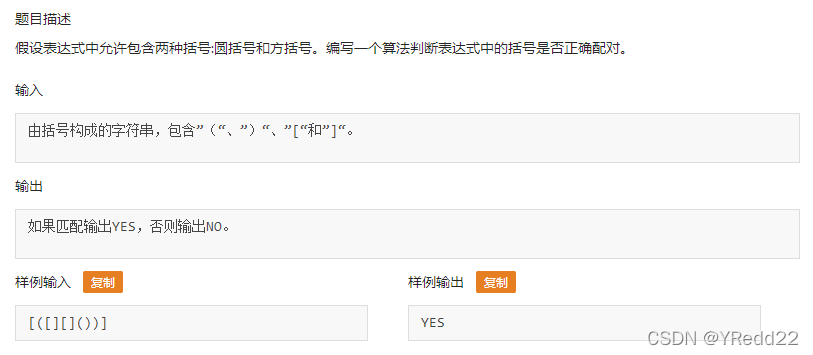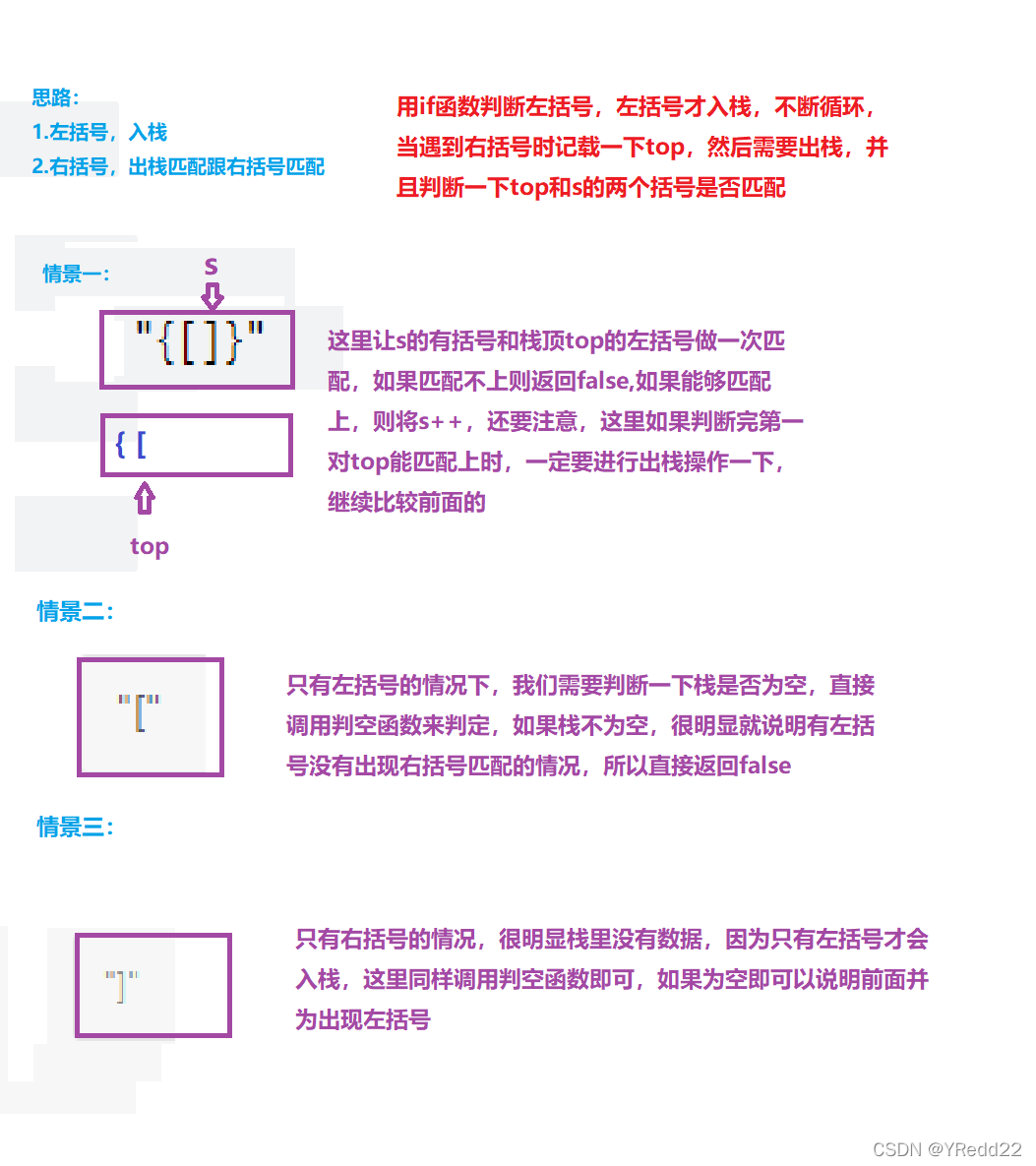题目:

20. 有效的括号 - 力扣(LeetCode) (leetcode-cn.com) https://leetcode-cn.com/problems/valid-parentheses/
https://leetcode-cn.com/problems/valid-parentheses/
SWUST这道题基本都是仿照力扣这题,并且力扣这道题测试用例给的多一些,我们就采用力扣给的用例场景进行图解。
力扣思路:

SWUSTOJ代码:
#include<stdio.h>
#include<stdlib.h>
#include<string.h>
#include<stdbool.h>
typedef struct Stack





 最低0.47元/天 解锁文章
最低0.47元/天 解锁文章


















 1203
1203

 被折叠的 条评论
为什么被折叠?
被折叠的 条评论
为什么被折叠?










